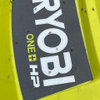Alternative to SAE30 oil?
The local Walmart has dedicated a full isle to 5 quart jugs of engine oil. I have searched thru two different stores and cannot find the 5 qt. size of SAE30 weight oil. Is there an alternative weight oil that I can use in my mowers (5 hp briggs, 13.5 hp briggs) - used in spring/summer/fall in NJ.
Also, I have never seen a SAE 0W30 oil before. Is SAE 0W30 a new name for SAE30?
Comments (43)
mustangm
Original Author13 years agoThanks Walt!
Is there an alternative grade oil that I can use? (mowers are used in spring/summer/fall in NJ)
Related Professionals
New Bedford Landscape Architects & Landscape Designers · Lake Oswego Landscape Architects & Landscape Designers · Aloha Landscape Contractors · Deer Park Landscape Contractors · Holland Landscape Contractors · Middletown Landscape Contractors · Nanuet Landscape Contractors · Spring Landscape Contractors · Vineyard Landscape Contractors · Wilton Landscape Contractors · Markham Landscape Contractors · Enterprise Carpenters · Enumclaw Carpenters · Roselle Carpenters · Tonawanda Carpenters1saxman
13 years agoYou'll have to buy it by the quart at Wal Mart because it is not normally used in road vehicles. You probably will find 4 or 5 qt jugs at NAPA. If the manuals for these engines recommend SAE30 in your climate range, it would be best to continue using it. By the quart, look for the bright green bottle of Quaker State marked SAE30HD. Another common one is Castrol. Both are excellent oil. For convenience with the push mower, you will find 20 oz bottles of 30W branded 'Briggs & Stratton' in the yard section at the various home centers/hardware stores. If you are only dealing with the two mowers, why not get a few of the 20 oz bottles for the push mower and a couple of quarts for the rider?
mike_home
13 years agoWhy can't you use SAE 10W-30 oil? Does your owner's manual state it cannot be used?
mustangm
Original Author13 years agoThanks sax & mike. I bought both mowers secondhand and therefore do not have the manuals. I did manage to find the riding mower manual online and it says to use SAE30 above 40 degrees F, and 10W30 below 40 degress F. It also indicates that I can use a synthetic 10W30 at any temperature. Any thoughts on using synthetic oil? I'll do a search after this post and I bet I will find some threads on this topic. Thanks to all!
mustangm
Original Author13 years agoSo will a SAE30 oil ever breakdown to act like a base stock 20, or it can never breakdown lower than its base stock?
Is it ok to use synthetic oil in a 25 year old mower engine?
What is it about synthetic that causes it to disappear quicker than dino oil?
Thanks for all the info guys!
roadbike
13 years agoI don't think that any of us are qualified to answer never and always questions about motor oil. Multi-grade oil has been used in a wide range of petroleum product powered engines for decades. And single grade oil has also been used for decades in the same applications. It's a lawn mower engine not the engine on an Airbus. Just get some oil that meets manufacturer specs for your lawn mower. In my experience that is likely to be 10W30 or 5W30.
ewalk
13 years agoMust: I would tend to agree with RB on the Viscosity Recommendation. Also as Bay has indicated if you choose to use a Full Synthetic keep an active eye on the oil level and for any unusual engine noise change during operation. I normally do not advise synthetics within older engines , they can work fine but I have had instances where engines bottom end bearing have gone south with the addition of lighter grade synthetic oil . Air cooled engines can become rather fussy about oil change after numerous hours or miles lol .
a-c_homesteader
13 years agoThe Briggs and Stratton repair manual I have (1981) says for summer SAE 30, 10W-30, 10W-40. Air cleaner cover on my 8hp says the same as the book. I use Havoline 10W-30 from lows of -10 to highs in the 90's with no problems
baymee
13 years agoI would NOT use synthetic oil on any engine that has some years on it. How many years? I don't know, but an original engine of 25 years.......Never.
Like Roadbike said, it's not an Airbus.
My quiet Ford 351 V8 with about 150K miles on it, went South one week after I converted to Amsoil 10W-30. It wasn't a coincidence.
ewalk
13 years agoBay: Perfect analogy of my point of Non Synthetic Oil Usage on Older Motors , Especially Air Cooled , which are Extreme Service Application although perhaps not Airbus Status Roflmbo .
a/c: Your absolutely correct on your Mineral Oil based Viscosity Recommendations for Small Air Cooled Engines , which Manufacturer really does not matter , everyone has a preference .
gg: I agree 100% Dude !
orangedotfever
13 years ago"My quiet Ford 351 V8 with about 150K miles on it, went South one week after I converted to Amsoil 10W-30. It wasn't a coincidence."
I say that it was a coincidence, in a manner of speaking. I know of many high mileage vehicles that have been switched to synthetic oil without issue. Your "one" does not make it normal. Switching to an oil with better lubricating qualities and having a more stable molecule will not harm your engine as long as the ratings are the same or better. That being said, certain cautions should be used with older, higher mileage or neglected engines. They are more likely to have deposits built up in them and this is where synthetic oil does it's job. Synthetic oil is MUCH better at cleaning these deposits and keeping them in suspension. Sometimes these deposits can come loose and clog ports and passageways. These deposits are the true root cause of the problems, NOT the synthetic oil. Since we now know this to be a potential problem, it is always a good idea to run a couple of engine flushes before switching to a full synthetic oil on an older/high mileage engine. This could also happen if you switch to a standard oil with a higher detergent level. I always run MMO for the last 1000 miles or so before an oil change in my vehicles to help keep deposits under control even while using good synthetics. Why MMO? Because I ran into this exact problem with my daughter's Ford Probe. I switched it to Amsoil at around 88,000 miles. It knocked crud loose that clogged an oil port in the head and caused a lifter it start ticking. The mechanic she took it to (she was away at college) added 16 ounces of MMO to the oil and told her to get out and drive it. Within 2 days the ticking was gone and the Probe is still running fine with over 165K on it.
Synthetic oil has been subject to old wives tales for decades now. It's the best thing that has happened to oil yet, but I agree that you need to take a few things into consideration before just jumping in with an engine that might have been neglected or has age and mileage on it. Saying that it is bad to switch to it is just misinformation.
baymee
13 years agoIt is exactly as you said. I bought the van at 100K from my bro-in-law who bought it new. He and I are both mechanics and the oil was changed every 3-6K. I put another 50K on it and my buddy Amsoil dealer convinced me to go to synthetic because the van was in such nice shape (1975 model)
I did exactly what he said and within a week my oil pressure went from formerly 60#, to zero at idle. It took a full city block to bring the pressure high enough to stop the knock, all the while, I was looking for a 351 block in the junkyards. It took 3 months, but I found one. Meanwhile I drove another couple thousand miles with the knock.
I thanked my buddy for NOT telling me that I had to flush my block before switching. He forgot to tell me.
When I pulled the crank and looked at the bearings, they were all scored from the synthetic cleaning up the little bit of sludge that was in the original engine.
So, what you say is true, but will small engine owners without filters on their engines be able to successfully switch a high hour engine to synthetic? I don't think it's worth the risk.
orangedotfever
13 years ago"So, what you say is true, but will small engine owners without filters on their engines be able to successfully switch a high hour engine to synthetic?"
Sure. For older, and modern non-pressure lubed engines, the risk would be much less. Especially if you didn't know, or forgot to do a flush. You would have to be more careful flushing an engine with plain bronze bearings, but that's where MMO would be the best way to provide flushing and lubrication.
ewalk
13 years agoBay/ Orange: You both make excellent and legitimate points of contention of potential problems of changing to a Full Synthetic Oil on a High Hr or Mileage Engine of any Design. The OP's question was for Small Air Cooled (Extreme Service) thus my recommendation and caution for the exact reason's you have indicated. No BS has been given Orange by any of the Forum Posters in my Opinion. Only caution , has been advised . This is from a Former Diesel Mechanic who also has yrs of experience within small engines (Snowmobile , Motorcycle , Chainsaws , Weed wackers and Brushers) . I also endorse and use Both Dino Oils and Semi Synthetic and Full Synthetic Oils on various applications. My Favorites being Rotella-T (Diesel) Valvoline DurBlend (Auto) and AMsoil (Small Engines) de
dependant on the units inherent requirements.
For the intent of the OP's question in my opinion a Multi Grade Dino Oil designed for High Milage Engines Eg: 10w-30 Valvoline High Milage would have sufficed , if as Sax advised Quaker State Straight-30 was not conveniently available.Note: Stating the Thread was BS was not appropriate Orange anymore than you saying OMC 2-Stroke TW-3 Oil from your 30 LB Mowers would be correct . Actually rather disrespectful to some rather Knowledgeable Contributor's. Ok off to Bed for E just back in from the Garage Prepping and Hanging my Buck form a Successful Bow Hunt . You Guys try to get alone ...EH ! :)
orangedotfever
13 years agoYeah, maybe I was a bit overboard but it bothers me when people make blanket statements about synthetics killing engines. As far as the TC-W3 oil in Lawnboys, at least I have proof of that being true. And I never said I had 30 LB mowers, but it's your story.
ewalk
13 years ago"And I never said I had 30 LB Mowers , but it's your story."
NO Actually it was Your's ! But Your correct 13 was the Magic Number according to your Scribe of August 2010 Sorry at 3:00AM after 4 hrs of Hanging and Cutting and Wrapping Venison things get Blurred.
Note: I never made any blanket statement that Full Synthetic or Semi or otherwise Killed Engines. I did indicate that I had observed a few instances wear Bottom End Bearing went South due to Synthetic Oil usage . EG: Air Cooled Electrical Generator Set and secondly on a 1999 Dodge Cummins Diesel. Never said it was the Oil's Fault but in truth rather the age of and state of condition of the engine . I also said that on numerous usages (Older Engines) that Synthetic Oil commencement was fine . It was only a casual caution that I put forward to the OP as to Oil Level awareness and Sound Level or Change within the engine if he should decide to go that route. Your Preaching to the Choir as to the benefits of Synthetic Blends of Oils Orange. I have used Klotz and Spectrum the 1st Nationally recognized Premium Full Synthetic over 33 yrs ago Raced Snowmobiles Professionally all over Your USA . But You won't find me putting Rotella-T Synthetic in my 2002 F-250 Navistar when Mineral Based has sufficed for over 250,000 Mile Bro :) I will stick with the Original Million Mile Dino Oil with this Old Girl . I'am with you with 100% Syn on my next New Cummins Diesel lol . No hard feelings Bro ! Just in case your a National Oil Distributing Agent...Just Kidding Dude !
orangedotfever
13 years ago"Note: I never made any blanket statement that Full Synthetic or Semi or otherwise Killed Engines."
You are correct. That's why that statement was not meant for you. Please don't take it that way.
ewalk
13 years agoOrange: 10-4 ! Hopefully the Originator found / finds a suitable Oil Product for his needs locally and convenient.
orangedotfever
13 years agoIf we really wanted to mess with the OP, we could tell him that the new oil he's looking for is non-detergent HD multigrade 30W30. How's that for putting a full 360 degree spin on it? LOL
andyma_gw
13 years agoMy engine fixing BIL is a staunch 30w guy in his small engines. I have gone to 10W30 in my OPE. I blew a rod on 5hp Tecumseh sno king, but it was more of messing with the governor than the oil. The B+S in my sit down, loves it.
ewalk
13 years agoOrange , Yeah the op is probably ran for the Hills scratching his Head , hopefully he heeded Sax's advice 1st off...already Roflmbo.
Andy: Yep has seen my share of Blown Tec from Guys trying to get a little more RPM out of the Old Girls in the Winter :)
roadbike
13 years agoEwalk said: "I did indicate that I had observed a few instances wear Bottom End Bearing went South due to Synthetic Oil usage . EG: Air Cooled Electrical Generator Set and secondly on a 1999 Dodge Cummins Diesel. Never said it was the Oil's Fault but in truth rather the age of and state of condition of the engine."
Huh???? In one sentence you say you observed bottom end bearings going south due to synthetic oil usage. The next one you say it wasn't the fault of the oil. Which is it!!
I would like an explanation of how you determined the use of synthetic oil caused bearing failure.
rosemallow
13 years agoSynthetic has come a long way. I remember when I was first introduced to using it in our factory Air Compressors.
The amps were lowered from 100 amps on each leg to 95 amps. That is a lot of savings by switching to synthetic.
We did have problems, which were cured and that was the synthetic oil attacked plastics. It actually distorted the air filter bowls and they blew out.
It also attacked the nylon gears on Chrysler/Plymouth distributors.
Anyway, that was a long time ago. I have been using synthetic oil for a long time and I use nothing else either at home or at work.ewalk
13 years agoRB: Both Incidents were Hydrodynamic Journal Bearing Failures . The Air Cooled Gen Set was Gaseous Cavitation Result and the Diesel was Vapour (O2) Cavitation Bearing Shell Erosion and Journal Failure. Both due to Age (wear) causing Greater Bearing Clearances than the Lighter Viscosity Semi Syn and Full Synthetics Oil were capable of handling Respectively. Both Examples were torn down and I actually Rebuilt the Diesel Crank Assembly Refurbishing with 40 Over Bearings. The Cummins had around 300,000 Miles at the time of the Failure and was still operational and in fleet service . We got another 80,000 Miles before injectors and both Low Pressure Lift Pump and High Pressure Injector Pump and Govenor Replacment needs retired the Ole Girl Permanently .
Note: As I said Bro the Oil Technology of the Time around 2000 was not anywhere we are now within Synthetics I believe they performed within Spec but were just not really Air Cooled Severe Service or Diesel Service Rated as is the Norm today with Amsoil or Rotella for example . I hope this further clarifies my previous statement .
roadbike
13 years agoInteresting Composition. There Are Lots Of Needlessly Capitalized Words In Your Two Wordy Paragraphs. Possibly To Impress While Throwing About Technically Impressive Words Like Hydrodynamic Journal Bearing Failure.
Boiled down so us commoners can understand, someone screwed up and used the wrong engine oil in an old worn out motor. Consequently the bearing surfaces floated on one another instead of a film of oil and trashed themselves.
ewalk
13 years agoRB: Well excuse me , hydrodynamic fluid theory of oil separating the bearing shell surface and the journal metal or lack of oil film there of was the resulting failure as described. In the Gaseous cavitation where the low pressure allowed gase to be released and in the other condition Vapour the excessive bearing clearance allowed excessive pressure and heat to actually boil of the lubricant causing actual erosion of the bear shell surface and crank journal . Sorry if this Retired Former Diesel Mechanic went to far in using proper cause and relationship terminology . You SIR asked for the explanation . That is why I said it was not the oils fault in the 1st place. Is that clear enough for you . Yes Synthetic Oils are not always a good choice for all Older Engine Application rather simple if you have any mechanical aptitude Dude !
roadbike
13 years agoI understand the processes and the big words.
However I actually asked about your two inconsistent statements. In one sentence you say the failure was due to using synthetic oil and in the very next sentence you say the failure wasn't the result of using synthetic oil.
"I did indicate that I had observed a few instances wear Bottom End Bearing went South due to Synthetic Oil usage . EG: Air Cooled Electrical Generator Set and secondly on a 1999 Dodge Cummins Diesel. Never said it was the Oil's Fault but in truth rather the age of and state of condition of the engine."
ewalk
13 years agoRB: I really don't know who pissed in your cornflakes ! If you read carefully , perhaps starting within the Fri Oct 1 st Post of mine . You will see that I agreed with your Viscosity Recommendations and also cautioned very clearly of lighter grades syn oils within extreme service applications . IE: Air Cooled Engines and Diesel's are Prime examples. I later stated that I never said semi or full syn oils Killed Engines ! Never have ! These oils can cause premature wear , within High Stress Components on the example High Mileage or Hour Stationary Equipment ENGINES that I have given. None of the failures were catastrophic in nature , but oil consumption and engine noise change became noticeable . I really don't see where your confusion is on contradiction if your read the notes within their intent , just a simple misapplied oil usage for the application 10W-40 or 15W-40 Dino Oil would be the Safe aternative on my examples. Anyhow Dude as for the Capitals , yes I probably do improperly use them for a form of Ownership and Emphasis , Sorry was a College Grade (Diesel) and Stationary Engineering not University Grammar Graduate. Secondly when you get my age your find it hard to drop bad habits . As for trying to impress , Hell No but these terms are familiar to me , did not think we had any 5th Graders on the Forum ...woops more Capitals . Last but not least try referring to internal combustion equipment as Engines not Motors which are Electrical Prime Movers. Have a Great Week . This Dude is off to MOOSE CAMP !
orangedotfever
13 years agoIt sounds to me that it was more a failure by use of the wrong weight of oil, not the use of synthetic.
"These oils can cause premature wear , within High Stress Components on the example High Mileage or Hour Stationary Equipment ENGINES that I have given."
I don't know that I can agree with that statement given that the proper weight and grade is used.
roadbike
13 years agoWow...don't eat yellow cornflakes ewalk...
All motors are in-fact engines.
An engine (or motor) is a machine designed to convert energy into useful mechanical motion. (In history) The term motor was originally used to distinguish the new internal combustion engine-powered vehicles from earlier vehicles powered by steam engines, such as the steam roller and motor roller, but may be used to refer to any engine.1saxman
13 years agoActually, 'motors' use externally-generated energy to produce work or motion, and 'engines' make their energy internally from fuel. This is a major distinction. Using the term 'motor' for an internal combustion engine, while widespread, is nevertheless incorrect. A Diesel/electric locomotive, for example, has a Diesel engine for powering a generator, and electric motors provide the motive power.
ewalk
13 years agoWell , This Due is Back with the MEAT (Cow) .
Orange: Thus Here Ends the Lesson ! Not All Multi Grade Syn Oils Supply the Proper Weight at least not back in 1999 for Older Engines Bro. I think we are on the same page more or less , I just caution small engine users of the risk of syn accordingly . On New Engines its a Green Light from E .
RB: Never Eat Yellow Snow or Corn Flakes Dude ! :)
Sax: Very good example of a very prevalent Misconception . Well illustrated .
Note: As a former Stationary Engineer (Steam) We quite often used Steam as the Pressure Motive Force (Prime Mover) for Steam Turbines to power Water Pumps , Electrical Generator Sets , Turbo Blowers ( Multi Stage Air Pumps) and Steam driven Compressors and Extractors within a Industrial Facility . Normally these Steam Turbines NOT Motors or Engines where back up to either Diesel or Electrical Prime Movers of the aforementioned Mechanical Equipment .
P.S. Sorry for any misconception , I value all contributions ! I love Synthetic Oil , use it regularly , but only on the right applications .
a-c_homesteader
13 years agoI have noticed this on Briggs engines. 1989 and newer say "Air cooled engines run hotter then automotive engines. Use of mutligrade oils 10W-30, etc above 40F will result in excessive oil consumption and possible engine damage" and says only SAE 30 above 40F
1988 and older say SAE 10W-30 and 10W-40 from 0F to 100F
roadbike
13 years ago"Actually, 'motors' use externally-generated energy to produce work or motion, and 'engines' make their energy internally from fuel."
Presumably you are talking about electricity vs petroleum energy sources. For both energy sources the energy is stored for conversion to another form so that a motor can be run. Gasoline represents energy that was externally converted and stored as much as electricity does. Thus motors depending on their design can convert energy in a variety of forms.
roadbike
13 years agoWhen one is presented with an inconvenient truth, dismissing it as "semantics" can be more comforting than addressing it.

















Greg Goyeneche